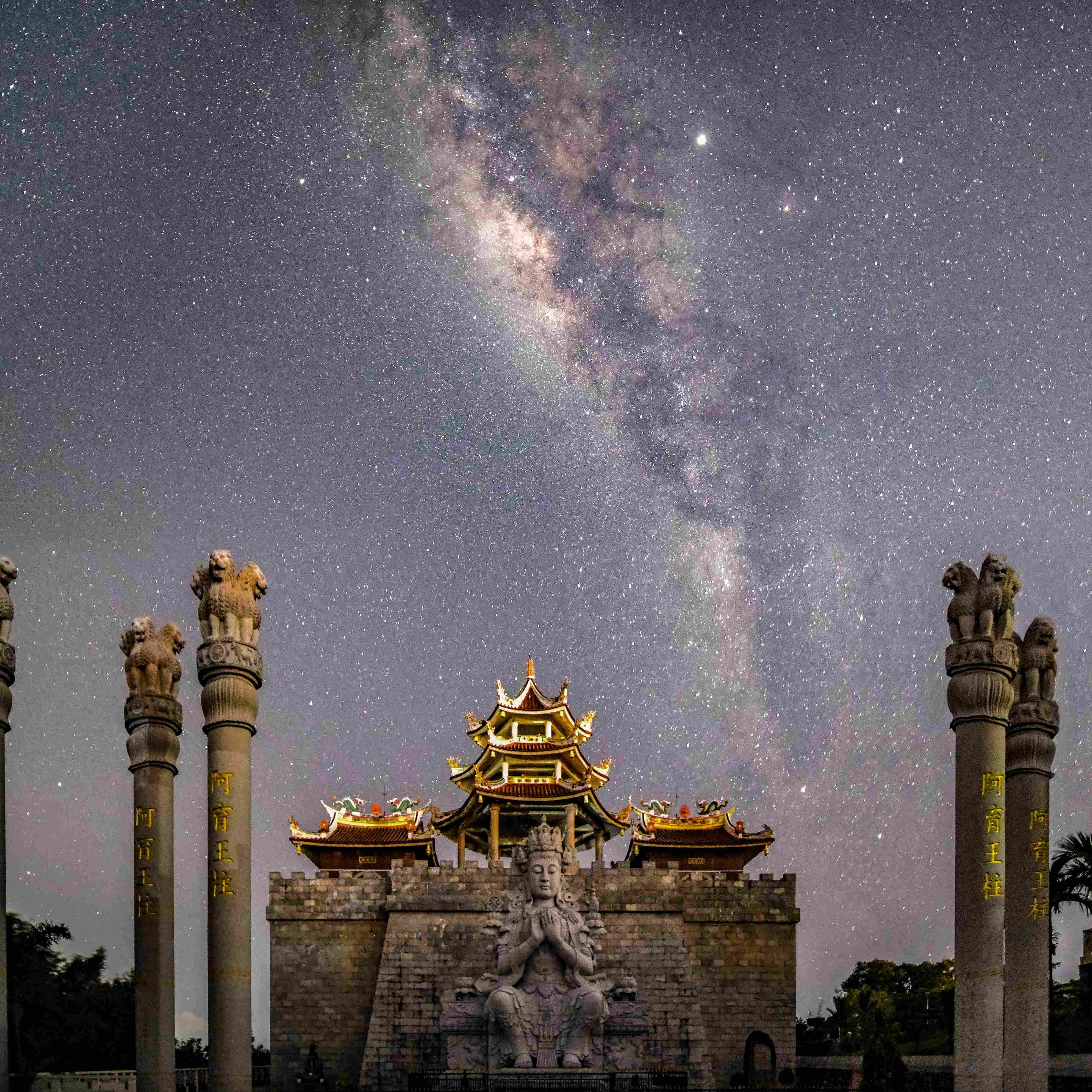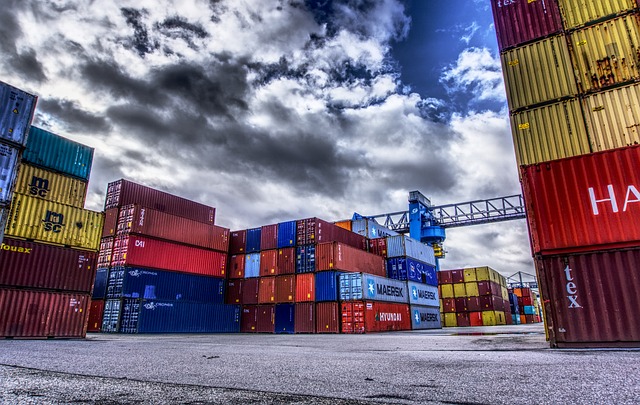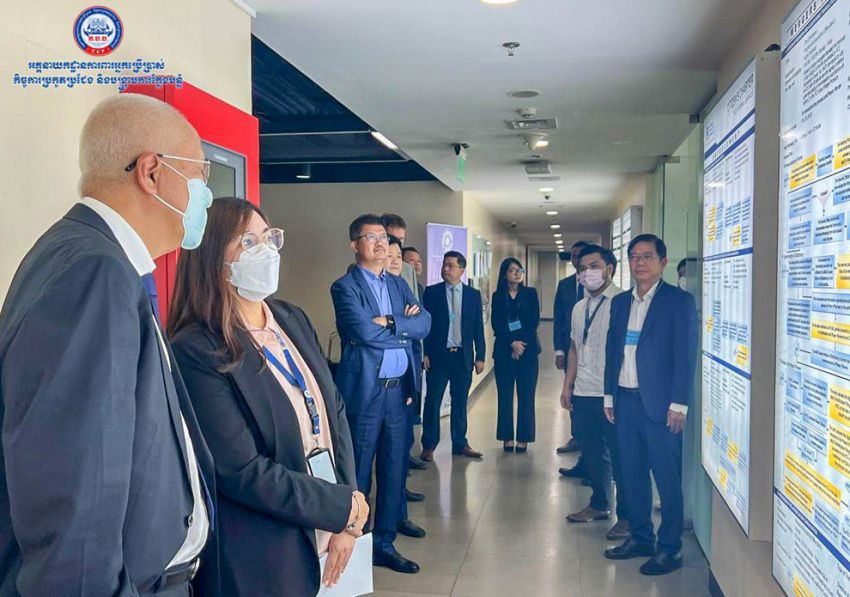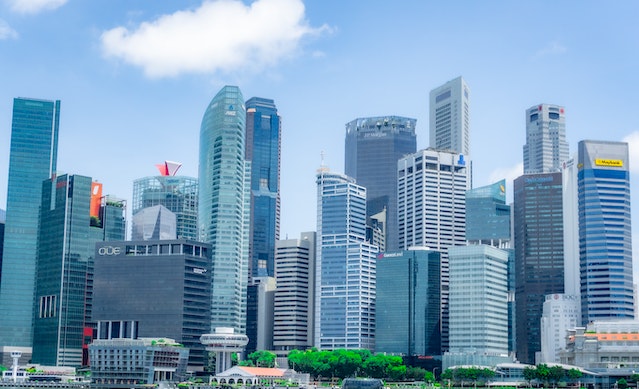People rushed to book hotels during the first day of the latest phase of the hotel subsidy programme, with 112,876 room nights reserved out of 560,000 available under the scheme within six hours.
Tourism Authority of Thailand governor Yuthasak Supasorn said the value of transactions during the first six hours of availability on Tuesday reached 443 million baht from 112,876 room nights.
Of the total amount, 60% or 273 million baht was paid by the purchaser and 170 million baht (40%) came from the government subsidy.
He said the rate of bookings was faster than predicted, reaching an average of 300 bookings per minute.
He said the strong demand was partially because of an easing in Covid-19 infections, which encouraged locals to plan leisure trips or visit their hometown during the Songkran holiday in April.
The 500 hotels added for the fifth phase of the scheme provides travellers with greater choice, said Mr Yuthasak, while the short duration (ending in April) and limited number of privileges, at less than a million, accelerated people's purchases.
He said even though key destinations such as Chiang Mai and Bangkok have high levels of air pollution at the moment, bookings for those destinations were strong as tourists haven't postponed or cancelled their trips.
The government started the first phase of the subsidy programme called "We Travel Together" in July 2020 in a bid to stimulate domestic consumption as borders were closed because of the pandemic.
The four previous phases of the scheme had a total budget of 27 billion baht for 11.5 million room nights, which generated more than 49 billion baht for the local economy.
The fifth phase was allocated a budget of 2 billion baht and is expected to generate direct income tallying 9.2 billion baht.
The overall economic impact from all phases of the scheme is estimated to total 58.6 billion baht.
According to the Tourism and Sports Ministry, 15.8 million domestic trips were made in January this year, comprising both overnight and one-day trips, representing an increase of 65% over the corresponding period last year.
Revenue for the period from local tourists rose 47.3% to 70 million baht.
Bangkok secured the largest number of visitors at 2.7 million, followed by Chon Buri (1.4 million), Kanchanaburi (1.3 million), Prachuap Khiri Khan (1 million) and Phetchaburi (950,890).
Source : Bangkok Post
Thailand and China jointly launched a training program on Monday (6 Mar) at Chiang Mai University to help develop e-commerce skills among vocational school students.
According to the training program organizers, the "Chinese Language Plus Professional Skills" e-commerce training program features Chinese e-commerce experiences incorporating Thai sensibilities.
The five-day training program, with 65 participating students, provides courses on developing the China-Thailand e-commerce industry, e-commerce platform operations, short video productions, e-commerce platforms basics, and network marketing.
Somporn Pandam, Deputy Secretary-General of the Vocational Education Commission under the Ministry of Education, said: "Thai vocational students will improve their e-commerce skills while also learning Chinese through this training program."
According to Somporn, the training program is a cooperative project between multiple partners in Thailand and China.
Pitipong Yodmongkol, Vice President of Chiang Mai University, said the program is part of a series of "Chinese Language plus Professional Skills" projects organized by Chiang Mai University and the Confucius Institute at Chiang Mai University.
He said it is expected to help cultivate knowledgeable and capable talent and has become an important force in promoting exchanges on culture, economy and trade between the two nations.
Hao Shumei, vice president of Yunnan Normal University, which provides support for the training program, also said it will promote the expansion of cultural and economic exchanges between China and Thailand.
Data showed over 2,000 Thai vocational school teachers and students have participated in the e-commerce training programs since they were introduced in 2021.
Source : NATIONAL NEWS BUREAU OF THAILAND
Source: The Malaysian Reserve
Source: The Edge Markets
The Competition Commission of Cambodia (CCC) and the Philippine Competition Commission (PCC) have discussed methods and means to expand cooperation to benefit the enforcement of competition law.
Commerce minister and CCC chairman Pan Sorasak led a delegation on a March 23-24 study visit to the PCC office in Quezon City, Philippines, at the invitation of PCC chairperson Michael Galicia Aguinaldo, according to the ministry’s March 24 press release.
“Through the GIZ-assisted project ‘Promotion of Competitiveness within the Framework of the Initiative for ASEAN Integration’ (COMPETE) phase II, the visit aimed to assist the CCC in acquiring a better understanding of the institutional set-up and best practices of PCC, particularly regarding the enforcement of competition law. It will also enhance bilateral cooperation between the CCC/CCF and the PCC,” it said.
“Sorasak highlighted the challenges of the nascent stage of regulations, including the building of credibility, and the benefits of turning to the best practices through the implementation of the “ASEAN Helps ASEAN” approach. They also discussed the various elements that contribute to a robust competitive regime,” it added.
During the visit, the delegation had the opportunity to learn about a number of key issues and themes delivered by the commissioners and directors of the PCC, including an overview of the Competition Regime of the Philippines and its organisational structure and functions. They also learned more about the PCC’s set-up experience and strategic planning, and worked on a roadmap to establishing a national competition policy. Workshops were also held on advocacy and engaging stakeholders, and the PCC’s procedures for competition enforcement and adjudication.
For full article, please click here
Author: Sok Raksa
Source: The Phnom Penh Post
DEEPENING Australia’s economic engagement with South-east Asia is one of the Australian government’s top priorities.
Australian Prime Minister Anthony Albanese has appointed me to lead a South-east Asia Economic Strategy to 2040, and I am consulting political and industry leaders to hear their perspectives. This week, I am visiting Indonesia and Singapore, two of the region’s economic powerhouses.
Australia wants to see more economic engagement with our region. That’s why our strategy will identify current and emerging opportunities to bolster two-way trade and investment between Australia and the 10 Asean member states and Timor-Leste.
We appreciate that Australian products, services and expertise are valued in South-east Asia. But what I’m hearing from partners is both sides can do more, especially in developing skills and investment.
We share a solid foundation on which to further mutual growth. South-east Asia is already one of the world’s most dynamic economic regions and its growth is increasing and developing its needs providing great opportunities for local and global partners.
Australia’s two-way trade with the countries of Asean passed A$127 billion (S$117.3 billion) in 2021, or nearly 14 per cent of Australia’s overall trade. This is greater than our two-way trade with Japan or the US.
Australia shares an established portfolio of 16 bilateral and regional free trade agreements with South-east Asia, such as the Asean-Australia-New Zealand Free Trade Agreement and the Regional Comprehensive Economic Partnership Agreement. Our current trade situation is good, and there are many existing and emerging needs we can respond to.
As our South-east Asian partners look for economic options to boost growth, Australia has much to offer. Australia and indeed our whole region has benefited enormously from the growth of global trade and investment. Our future growth will depend in large part on how we address barriers to trade and investment and indeed do all we can to facilitate great flows throughout the region.
Through trade diversification, including of supply chains, we can promote economic resilience and improve food and energy security. Australia is a trusted and reliable supplier of high-quality grain, meat, fruit and vegetables to the region.
We also invest in sustainable, resilient and productive agriculture and food systems. In 2021-2022, Australian agricultural, fisheries and forestry trade with South-east Asia totalled A$20 billion. The region is also a significant consumer of Australia’s energy, minerals and education.
As a developed economy, Australia has an extensive service sector which is able to share its expertise with the region.
Australia’s world-class universities are consistently ranked among the world’s best and are a vast resource of research and innovation. They are a good example of how our services sector can contribute to capability building across the region.
Many other contributions are being made across the services sector including health, mining services, finance and accounting; these have good prospects for future growth.
Australia is committed to working with South-east Asia to build a resilient, clean energy sector. For example, the landmark Singapore-Australia Green Economy Agreement (GEA) supports mutual economic and climate change objectives, and will help build global clean energy capacity.
We need to demonstrate our potential as a renewable energy superpower, and supporting net-zero transitions is in Australia’s and the region’s interest.
Shared challenges, such as climate change, need a shared solution. Australia is ambitious for what we can achieve together. We are supporting enhanced climate action in South-east Asia, including through increased climate finance partnerships, such as our A$200 million commitment towards a climate and infrastructure partnership with Indonesia.
Emerging regional trends, for example growing middle classes, demographic shifts, digitalisation and increasing importance of sustainability, will transform South-east Asian economies over the next two decades.
The consumer class in South-east Asia is increasing with greater purchasing power. In Indonesia, the Philippines, Malaysia and Vietnam, immense growth is set for the next few decades. By 2040, across most South-east Asian economies, there could be almost 26 million households with disposable incomes of over US$35,000.
One in two Australians are either born overseas or have parents who were born overseas, and many are from our region. In addition to their deep contributions to Australian society, these Australians and the many students and temporary workers from the region provide a wealth of talent to drive the further economic links. This is particularly so in the vital services sector.
The Australian government’s Blueprint for Trade and Investment with Indonesia is an example of the strong interest from Australian companies considering market opportunities in the region. With Indonesia predicted to be fourth-largest economy in the world by 2045, it’s easy to see why.
Singapore is Australia’s largest trade and investment partner in Asean and our business ties are strong.
We remain ambitious in how we will deepen our economic opportunities, particularly as we give effect to the GEA and work together on a bilateral Food Pact. If we can build similarly strong economic relationships with other countries through fulfilling partnerships and opportunities, this will bring long-term benefits to us and the region.
Throughout the Covid-19 pandemic and recent world events, Australia’s international trade has remained strong in most sectors. This resilience, coupled with partnerships and economic trends in our region present an excellent opportunity to deepen economic engagement with South-east Asia.
The writer is Australia’s Special Envoy for South-east Asia, and a former CEO of Macquarie Group.
Source: The Business Times. Link Here.
























